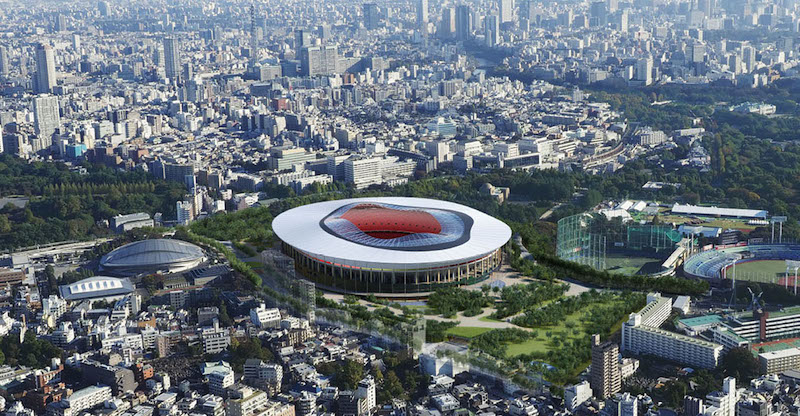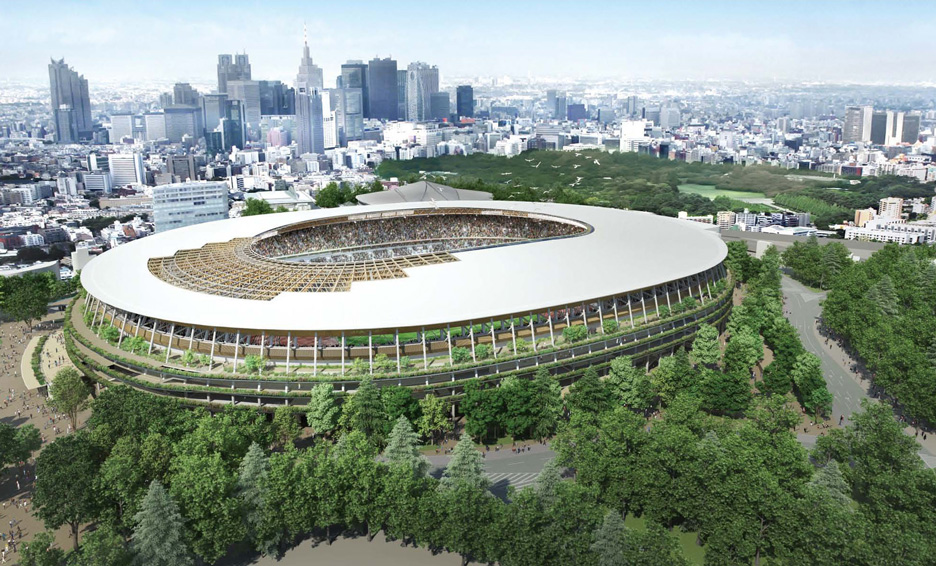The Japanese government revealed the two final designs for its Olympic Stadium for the 2020 games in Japan, as the Telegraph reported. The proposals will now be open to comments, and will eventually be up for a jury vote. The winning design will be selected by the end of the year.
The two projects’ designers have been kept anonymous, but they are believed to be Japanese architects Kengo Kuma and Toyo Ito, according to Dezeen.
Design A, reportedly from Kengo Kuma, is a 164-foot-tall, ring-shaped stadium that has wood latticework, a flat roof, and columns supporting viewing terraces. Design B, from Toyo Ito, according to Dezeen, is 178 feet tall, oval-shaped, and has exterior glass walls. Design A is estimated to cost $1.25 billion (¥153 billion) and Design B’s price has been pegged slightly above that ($1.26 billion, or ¥153.7 billion).
Japan cancelled Zaha Hadid’s Olympic Stadium plan in July for numerous reasons, with rising costs as the main issue. The stadium was projected to cost around $2 billion, or 252 billion yen, after revisions and delays in design and construction.
Though the venue won’t be open for the 2019 Rugby World Cup as originally planned, the new stadium is expected to be completed in time to host the 2020 games.
 Design B, from Toyo Ito
Design B, from Toyo Ito
Related Stories
| Aug 11, 2010
Nurturing the Community
The best seat in the house at the new Seahawks Stadium in Seattle isn't on the 50-yard line. It's in the southeast corner, at the very top of the upper bowl. "From there you have a corner-to-corner view of the field and an inspiring grasp of the surrounding city," says Kelly Kerns, project leader with architect/engineer Ellerbe Becket, Kansas City, Mo.
| Aug 11, 2010
Financial Wizardry Builds a Community
At 69 square miles, Vineland is New Jersey's largest city, at least in geographic area, and it has a rich history. It was established in 1861 as a planned community (well before there were such things) by the utopian Charles Landis. It was in Vineland that Dr. Thomas Welch found a way to preserve grape juice without fermenting it, creating a wine substitute for church use (the town was dry).
| Aug 11, 2010
Integrated Project Delivery builds a brave, new BIM world
Three-dimensional information, such as that provided by building information modeling, allows all members of the Building Team to visualize the many components of a project and how they work together. BIM and other 3D tools convey the idea and intent of the designer to the entire Building Team and lay the groundwork for integrated project delivery.
| Aug 11, 2010
Bronze Award: Alumni Gymnasium Renovation, Dartmouth College Hanover, N.H.
At a time when institutions of higher learning are spending tens of millions of dollars erecting massive, cutting-edge recreation and fitness centers, Dartmouth College in Hanover, N.H., decided to take a more modest, historical approach. Instead of building an ultra-grand new facility, the university chose to breathe new life into its landmark Alumni Gymnasium by transforming the outdated 99-y...







